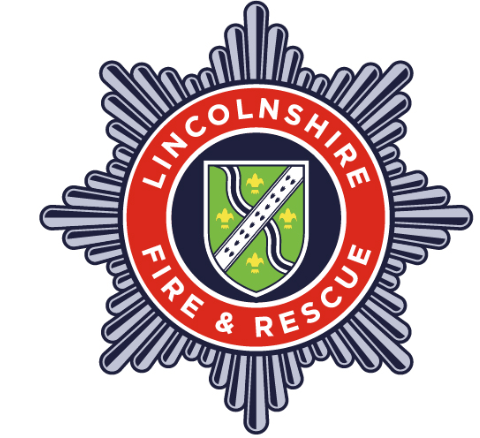What to do and how to prepare for an emergency
How to be better prepared
During emergencies, always follow the advice of the emergency services.
There are however things you can do now to make you more prepared should you be caught up in an emergency.
5 minutes preparing now could save you a lot of time in an emergency…
- Know what the biggest risks are to you and your area – you are already reading this so you are well on your way to understanding what the risks are to the county. Find more on the main risks that we face and prepare for here.
- Prepare a grab bag that includes medicines, key phone numbers and insurance documents.
- Know how to turn off the utilities in your home as in an emergency you may need to turn off electricity, gas, and water supplies. If you know how to do this in advance it will be much easier than when an emergency happens.
- Think about how you could assist older and vulnerable people who live near you. In an emergency, they may need your help.
- Pre-plan how to protect your pets and animals, so you know exactly what to do to help them.
- Make a call… Sign up for the Environment Agency Flood warning service 0345 988 1188 - www.gov.uk/sign-up-for-flood-warnings
- Learn some basic first aid - First aid - NHS (www.nhs.uk) or First aid by British Red Cross on the App Store (apple.com) or Google Play.
Creating an emergency kit
Three ways to Prepare
Consider creating a basic ‘grab-bag’ for yourself/family with the following items:
- Food and water to last 3x days (tin opener)
- Portable radio and Torch (batteries/wind-up)
- First Aid Kit
- Medications/Glasses
- Whistle
- Wet-wipes, rubbish bags, plastic ties
- Wrench/Pliers (utility shut-off)
Consider expanding your ‘grab-bag’ with the following items:
- Infant formula milk and disposable nappies/sacks
- Important family documents such as passports
- Complete change of clothing including a long-sleeved top, trousers and sturdy shoes
- Paper cups, plates and plastic utensils, paper towels
- Paper and pencil
- Pet care items
- Sleeping bag or warm blanket (per person)
- Consider additional bedding/clothing during winter
- Water purification tablets
- Feminine supplies and personal hygiene items
Consider creating a basic ‘grab-bag’ for pets with the following items:
- Pet food and treats
- Can opener for canned food
- Sturdy leashes, harnesses and/or carriers so you can move your pets safely and they can’t escape
- The name of your veterinarian (written)
- Drinkable water in plastic bottles
- Current photos of your pet in case they get lost
- Pet medications and medical records in a waterproof container
- Identification tag and collar
Consider creating a basic evacuation plan for yourself/family
Creating an Evacuation Plan
- Plan places where your family will meet, both within and outside of your immediate neighbourhood
- Become familiar with alternative routes and other means of getting out of your area
- Take your emergency kit unless you have reason to believe it has been contaminated
- If you have a car, keep a half tank of fuel in it at all times in case you need to evacuate
- If you do not have a car, plan how you will leave if you have to
- Lock the door behind you and take any pets with you
Three ways to prepare:
What to do:
If you are not directly involved in the incident, it’s best to move inside a safe building and stay put until advised otherwise. Tune in to local media (such as radio or TV) for the latest information. Try to remember: Go in, Stay in, Tune in.
Make sure 999 has been called if there is a threat to life, follow the advice of the emergency services, and think calmly before acting to avoid danger.
If you’re at home when an emergency is declared:
- Bring your family and pets inside
- Go into an interior room with few windows
- Tune in to local media (such as radio or TV) for the latest information
- Keep necessary tools near gas and water shut-off valves
- Lock doors, close windows and air vents
- Turn off fans, air conditioning and forced air heating systems
- Locate the electric, gas and water shut-off valves
- Teach family members how to turn off utilities (but do not attempt to switch them on yourself)
Guidance on electric scooters and bikes
This guidance covers the use of e-scooters and bikes.
Guidance for Cycle Sportive Events
This guidance has been written by Lincolnshire County Council Highways and Lincolnshire Police with the aim of assisting in the organisation and running of safe, legal, and successful non-competitive cycling events within the county
Guidance for Lincolnshire Tractor Run Organisers
This guidance document outlines the process organisers need to follow to register a tractor run on the highway and provides advice to organisers to ensure that these events can be carried out safely and legally.
This policy covers both the unauthorised use of drones and model aircraft over event sites and also the authorised use of drones and model aircraft whether by persons given permission by event organisers or by third parties who have requested to film the event.
Fire Risk Assessment Templates
In addition to a Risk Assessment a separate Fire Risk Assessment needs preparing for your event.
Lincolnshire Fire and Rescue Firework Information
Follow the attached guidelines if you intend on having fireworks at your event
Are you signed up to receive flood warnings? If not call the Environment Agency Floodline on 0345 988 1188 to see if your area receives free flood warnings.
Discover how you can be better prepared to deal with flooding, with suggested protection methods from the Lincolnshire Resilience Forum.
Some of our partners

















